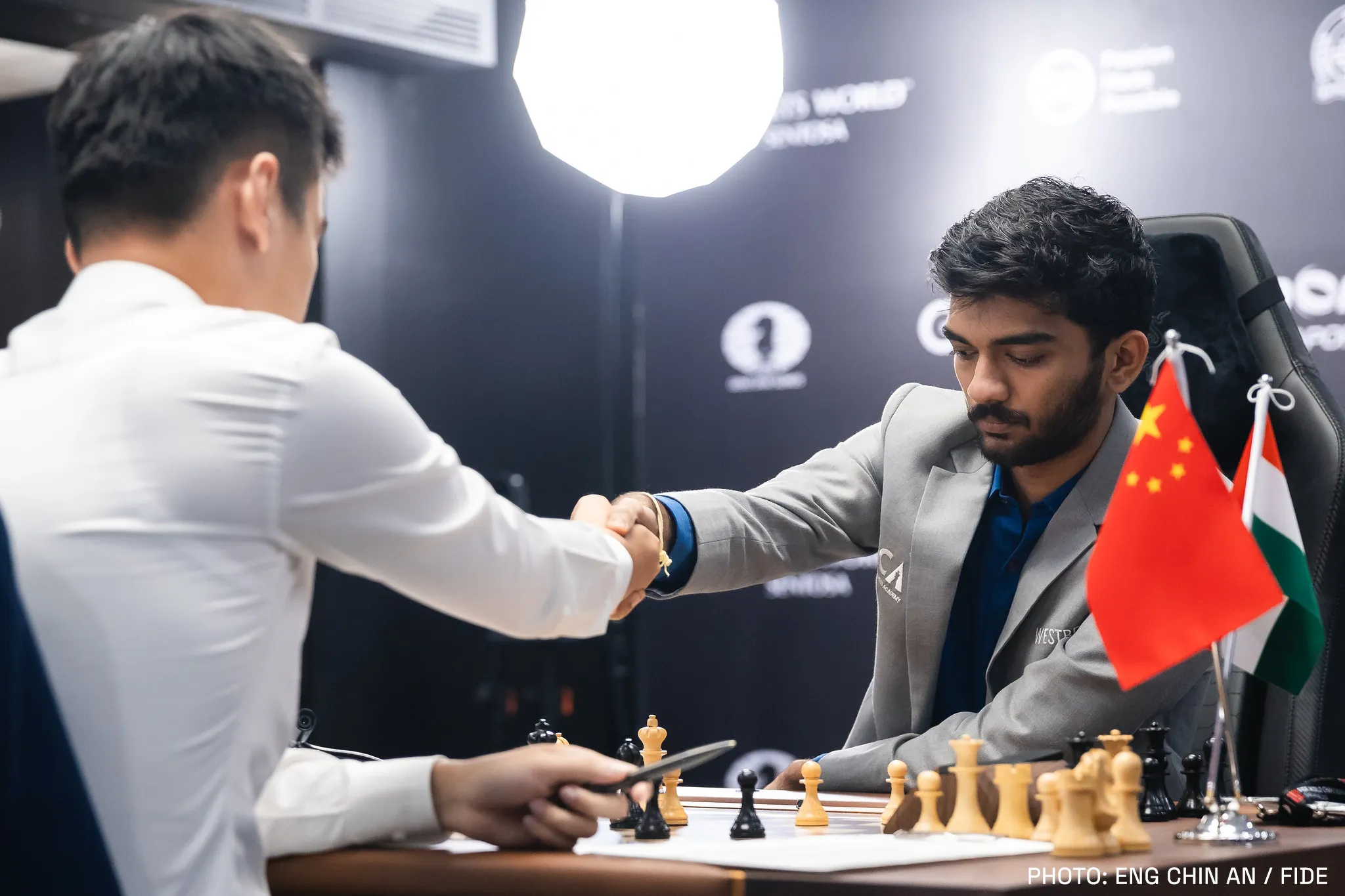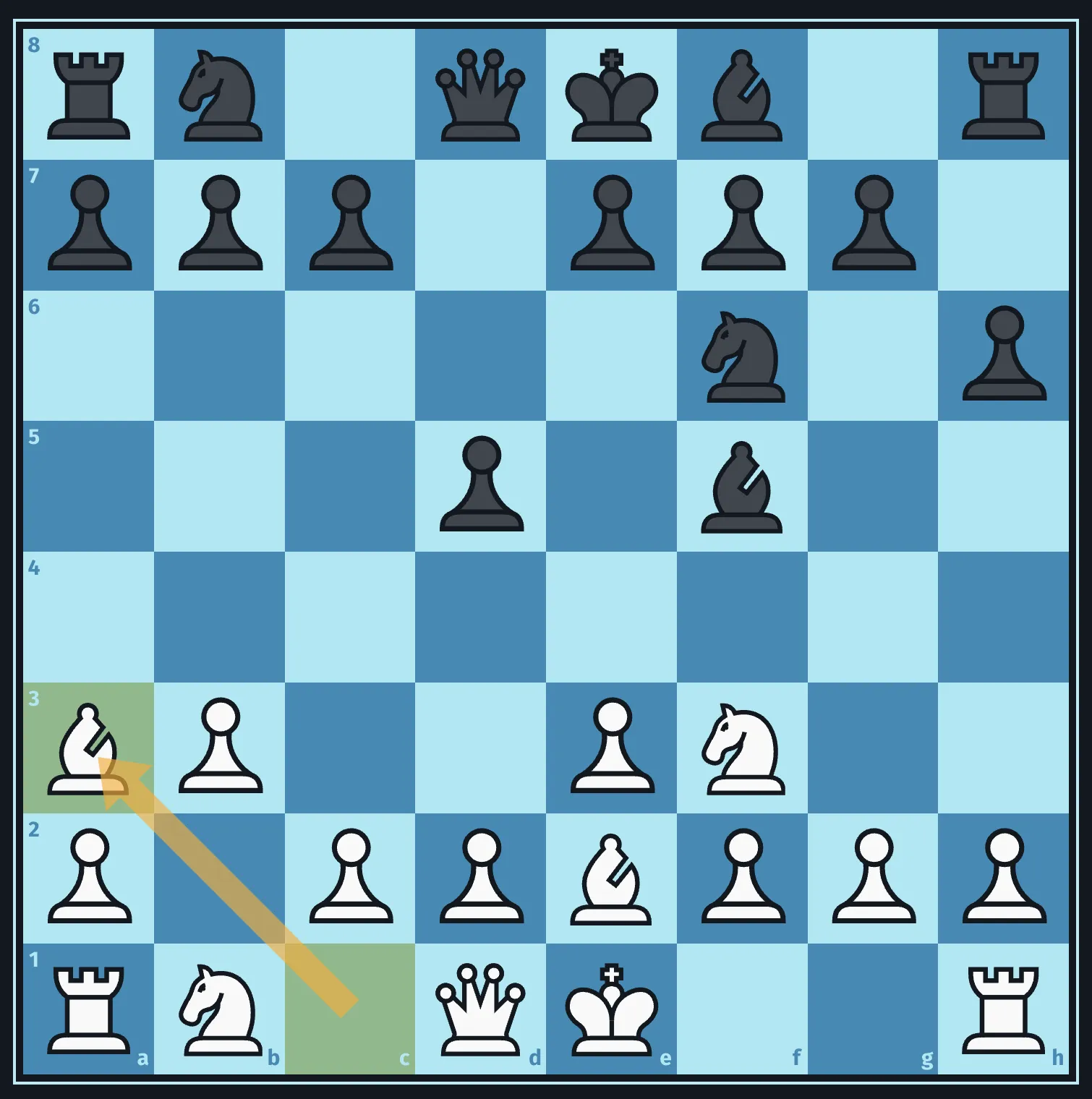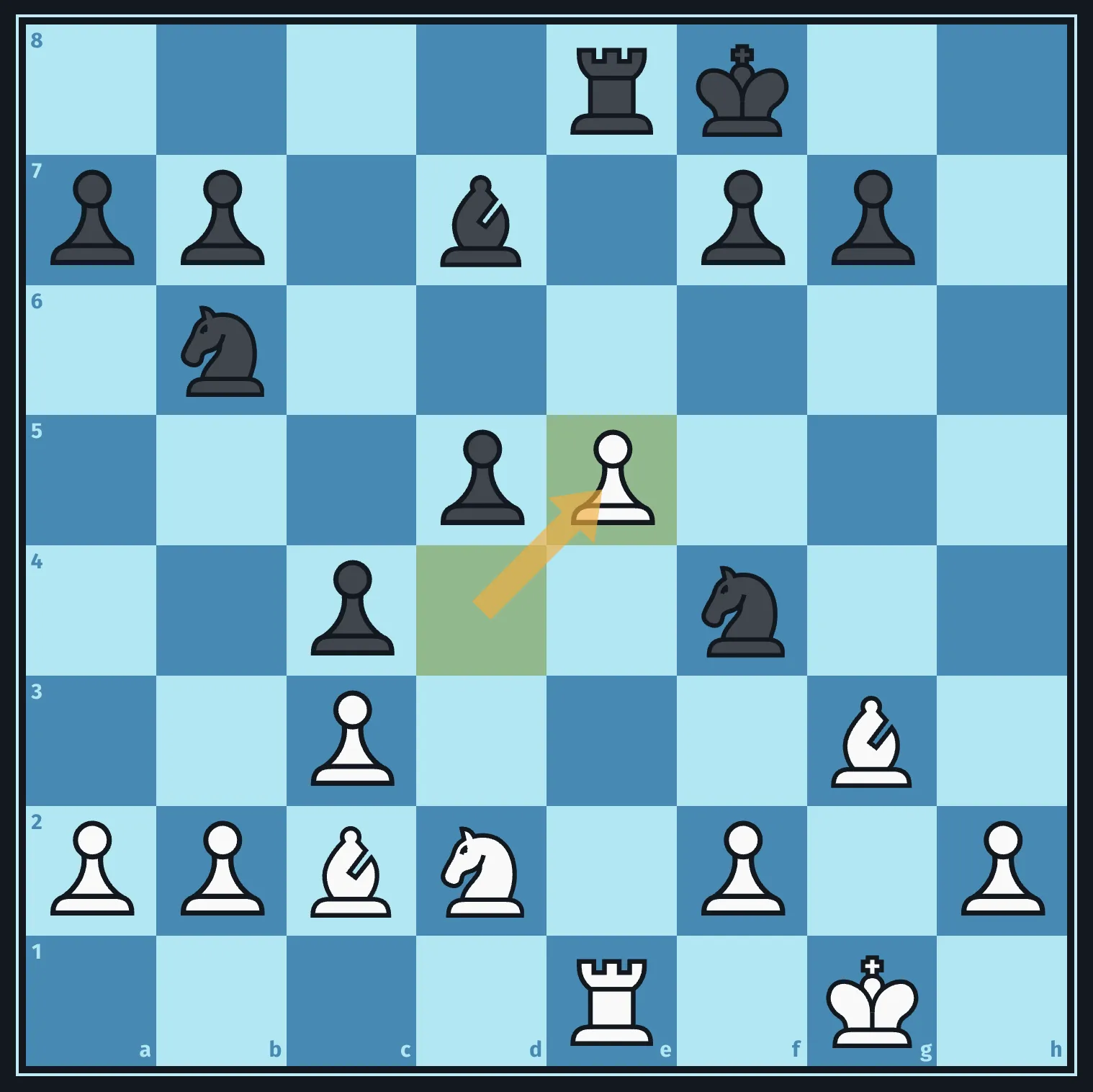Added on 11/30/2024


Games 4 & 5: the calm before the storm?
The World Championship match appears to have entered an impasse, as the fourth and fifth games ended in relatively uneventful draws.
Of course, no game at this level is without interest—and even the smallest subtleties hold significance in a match. However, these games lacked the excitement of the first three. Both players opted for unambitious openings, and some of their decisions during play seemed overly cautious. Gukesh experienced Ding's deep strategic vision in the opening game, while the World Champion witnessed ‘The Indian Calculator' in action during game three. Both players now understand their opponent's ability to strike, and neither was willing to risk any pain at this stage.
But game six is about to begin, and those familiar with World Championship history know that, for some reason, the sixth game often turns out to be a thriller.
Why is that? I think it's a sweet spot in the match when both players are fully settled and acclimated to the format, the venue, and their opponent. The "testing the waters" phase is over. Coaches have fine-tuned their weapons and strategies, and the players aren't too fatigued yet. It's the moment to show what they've got.
So, game six—bring it on!
Game 4: In the presence of (chess) Gods
One of the highlights of game four was the presence on stage of five-time World Champion Viswanathan Anand and Xie Jun, the first World Champion from China and one of the first women to achieve the GM title. These two chess legends were invited to make the ceremonial first move.
It's impossible to overstate the significance of their contributions to the development of chess in Asia. They paved the way and inspired thousands. It wouldn't be an exaggeration to say that Ding and Gukesh might not be here today, playing this match, if not for the trailblazing achievements of Vishy and Xie Jun, and their efforts to popularize chess.
It's clear that Ding's opening choices in the opening are heavily influenced by his coach, Richard Rapport. In this game, the Champion opted for a Zukertort Opening with 5.Ba3—not exactly a mainstream line!

The challenger, however, was unfazed, and I'd even say he didn't seem surprised. Gukesh appears to have accepted that Ding will try to surprise him in every game, and he's responding with the right mindset. Although the World Champion managed to gain a slight edge, with a position that was easier to play for White, Gukesh held his ground and didn't have to work too hard to secure a draw. Ding even helped him by playing 16.Nf3, which openly invited a simplification of the position.
Game 5
The fifth game was likely more intriguing due to its inaccuracies than its moments of brilliance—But that's part of the game too!
Ding went for the French Defense, signaling that this opening isn't just a one-time surprise but one of his main weapons for the match. Gukesh responded with the Exchange Variation, which, while not without its venom, was followed by further simplifications, including the exchange of Queens and a Rook along the e-file. This doesn't seem to fit his style. Perhaps he was just buying time for his team to prepare sharper lines against the French Defense in future games?
Despite the early exchanges, there were still enough imbalances to keep the game alive. However, 19.g5 was likely a poor positional choice by Gukesh, and it was soon followed by the clear mistake 23.dxe5.

This allowed Ding to play, risk-free, for only two results. I am pretty sure players like Karpov, Fischer, or Carlsen would have enjoyed grinding this position for hours and, even if the engine says White can hold, any human player would have a hard time defending this endgame. Ding, however, was not in the mood. He allowed simplifications once again, and some of his moves, like 29…Bc6 instead of 29…Bh5, are hard to explain.
What the experts say
Let's finish this recap with some opinions from chess personalities on social media and other channels:
Magnus Carlsen: "First of all, we had three games with Ding having Black. It's been a massive success for him. He's on 50% with Black and has had better positions in every single game. That's a fact."
Judit Polgar: "This game was full of surprises for me. #Gukesh choice to play the exchange French 3.exd5 was unexpected. I felt it was not in Gukesh's spirit. Later it was another surprising decision by #Ding when he could play to win without risk, but he was not aware of it and went on to simplify to a draw. I am curious to see how it will affect the mindsets of the players in upcoming games."
John Bartholomew: "I sense Ding believes his sole path to winning this match is squeaking by in a close one. Doesn't seem open to the possibility that he could dictate the pace and dominate. He reminds me of a boxer who won't let his hands fly. Content to clinch and try to win on the scorecard."
